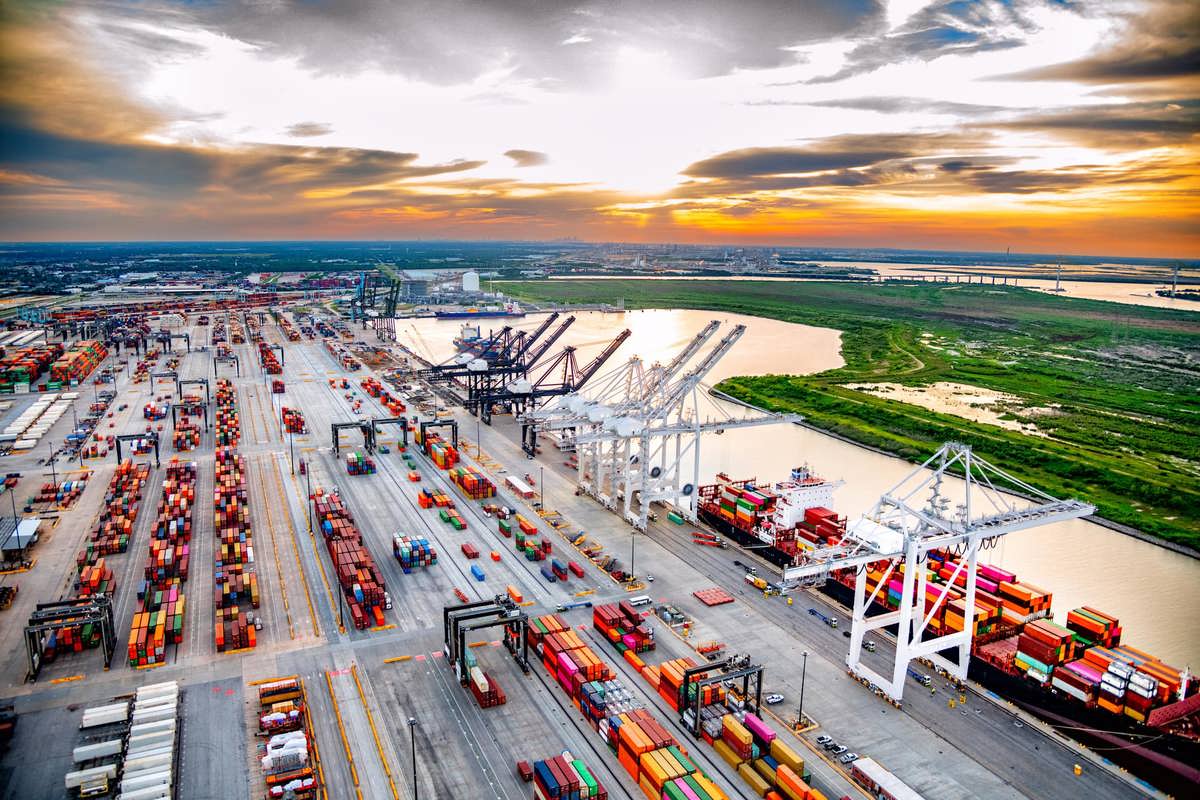US can leverage IMO’s net-zero framework to monetise LBM market – Vanguard
The US is well placed to benefit from shipping’s future appetite for liquefied biomethane (LBM) if the IMO’s net-zero framework (NZF) is adopted in October, a new study by Vanguard Renewables highlights.
 IMAGE: Aerial view of port of Houston in the US. Getty Images
IMAGE: Aerial view of port of Houston in the US. Getty Images
The IMO’s draft NZF, due for adoption later this year, will require ships to gradually cut their well-to-wake GHG intensity from 2028, benchmarked against 2008 levels at 93.30 gCO2e/MJ.
A new study conducted by US-based biomethane producer Vanguard Renewables forecasts that global LBM demand could reach 100 million mt/year by 2050 – four to five times today’s total production capacity – as shipping seeks to meet the global regulator’s net-zero ambition.
The study points to the US as a natural frontrunner. With more than 3 million miles of natural gas pipelines and liquefaction systems, the country has a ready-made backbone to scale LBM supply. It is also the world’s largest producer of renewable natural gas, accounting for roughly a third of global output, with feedstock availability that could enable production to expand 25–30 times its current level.
However, scaling bunkering infrastructure will require significant investment.
Vanguard estimates $120–220 billion will be needed to develop the value chain for LBM and other advanced fuels.
That could include $35–70 billion for fuel production technologies such as anaerobic digesters, $20–40 billion for LNG liquefaction trains and port storage, $4–5 billion for bunker barges and $60–105 billion for renewable electricity and green hydrogen production.
Shipping’s demand for LBM could generate $105–185 billion in revenue for the US agricultural sector, driven by feedstock and land use. In total, the report estimates the wider investment could yield a potential payback of around $2–3 trillion in economic value through 2050.
“The United States already has the right ingredients to support the maritime sector’s proposed roadmap to decarbonisation,” Michael O’Laughlin, chief executive at Vanguard Renewables said, but the opportunity depends on IMO member states approving the NZF in October.
Vanguard report also stressed that the framework should recognise the well-to-wake methane abatement value of LBM and establish a book-and-claim system to ensure US producers can capture the full opportunity of the global regulation.
By Konica Bhatt
Please get in touch with comments or additional info to news@engine.online






